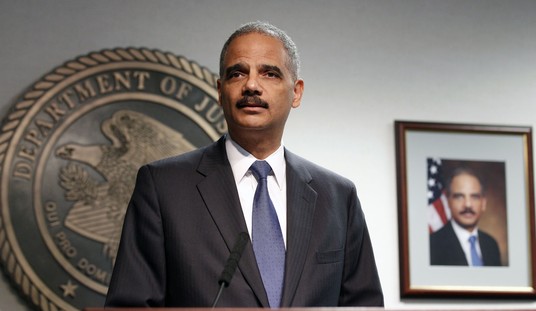Congress isn’t getting a glimpse of what’s on President Barack Obama’s Blackberry – or any more internal White House communications related to the bankrupt solar company Solyndra, which received a $535 million loan guarantee from the federal government…
On Friday the White House Counsel sent a letter to the House Energy and Commerce Committee explaining they won’t comply with the request because it “implicates longstanding and significant institutional Executive Branch confidentiality interests.”
The response is hardly a surprise given past administrations’ refusal to comply with similar congressional requests. The difference here? President Obama is the first Chief Executive to carry a Blackberry, so it’s the first time a White House counsel has – even indirectly – turned down an attempt to peek at his email. Neither the Blackberry nor his personal email is explicitly mentioned in the letter…
The letter states the White House has turned over another 900 pages related to communications between the White House and Solyndra, its representatives and investors. She offers to cooperate further with the investigators.
We knew last week that they had their eye on his Blackberry, annnnd we also knew that they weren’t going to get it. So we’ll have to settle for some new Treasury Department e-mails instead. In case you’ve been wondering whether it’s legal for the government to agree to a loan restructuring that subordinates taxpayers’ interest to that of some private creditor, good news: Treasury’s been wondering that too.
One August 2011 email from a Treasury official obtained by Fox Business Network stated that federal regulations say the taxpayer money “shall not be subordinate” to other investments. “I will bet a quarter that the DOE lawyers have some kind of theory on how whatever restructuring they have done and whatever they are considering doing does not violate these requirements. Can’t wait to hear it,” the official said.
Another August email questioned why investors were even considering putting more money into the company. “I think DOE should be thinking through whether the proposed deal is just giving the investors more time to extract more value from the firm before bankruptcy,” the Treasury official said.
The GOP lawmakers cited other emails showing that Mary Miller, an assistant treasury secretary, said the restructuring deal could violate the law because it put investors’ interests ahead of taxpayers. Miller told a top White House budget official that she had advised that any proposed restructuring be reviewed by the Justice Department before it was approved.
“To our knowledge that has never happened,” Miller wrote in an Aug. 17 memo to the White House Office of Management and Budget.
So intent was Energy on helping out Solyndra that they evidently didn’t pause to consider whether the restructuring might be illegal. I wonder why. Simple cronyism involving the company’s investors, perhaps — or was there something more? If you missed it in Headlines earlier, read Chris Stirewalt’s piece noting that the Obama administration thought Solyndra was a good bet even after it had lost its competitive edge against Chinese firms because they still believed in early 2010 that they might be able to pass cap and trade. If C&T went through, the price of carbon would skyrocket and so would demand for clean energy. Solyndra might start to look like a good buy at that point, even though its units still would have been pricier than China’s. That doesn’t explain why Energy would have agreed to the restructuring late last year, long after any hope of cap and trade had died, but it does tie this story up in a neat little bow. The only way to justify micro-interference in the market by propping up Solyndra with taxpayer cash was to first cause macro-interference in the form of a massive new regulatory scheme. Make the market inefficient enough and eventually even the Solyndra loan could have been efficient!
Here’s video of today’s hearings. Note the response of Gary Burner, the CFO of Treasury’s financing bank and a 28-year veteran of the Department, when asked whether he’s ever seen taxpayers’ claim subordinated in a federal loan before.








Join the conversation as a VIP Member